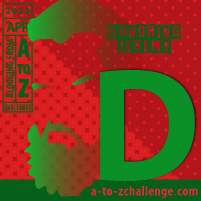I had planned to refine the factions I’d devised yesterday, but I ran into a complication.
Namely, by focusing the factions on opposite sides of the polyhedron, I ensured there would be no real interaction between them. I even mentioned how polarized the pantheon was… but that’s not quite what I wanted.
I think I see a way forward, namely by creating some smaller factions around the edges of the major factions, but I’m not really ready for that. Maybe in a couple of days.
In the meantime I need another post, so I figured I’d touch on something I’ve wanted to do for quite a while.
The divine channeler is a replacement for the cleric class (released by Rite Publishing) that takes the cleric in a direction I’ve wanted to go for quite a while. I have long wanted to replace the cleric with a class that has greater reliance on divine channeling than on spell casting. Rite’s divine channeler comes close.
- Medium base attack bonus (+3/4 advancement)
- Good Fortitude and Will saves
- Spell casting much like a cleric’s but with fewer ‘cleric spell slots’ and more ‘domain spell slots’.
- Cleric weapon proficiency, reduced armor proficiency
- More domains (start with two, gain two more later).
- Increased channel energy (more dice of effect).
This isn’t exactly what I had in mind, but it’s pretty close. I think what I’d like is for the cultist to have the following:
- Keep the cleric base attack bonus and saves.
- (Probably) reduce class skills, to be built back up by the chosen domains.
- Replace ‘domains’ with something closer to mysteries, with changes described below.
- Reduce casting to the base spell slots (i.e. no bonus domain spell slot) and spell knowledge to just the spells of their chosen ‘domains’.
- Gain a granted power at each even level (2, 4, 6, etc.), picked from the chosen domains.
- Retain channel energy, and probably get more uses per day. Unlike the divine channeler I think it will stay with the same progression (1d6 at first level, +1d6 per two levels after that) as the cleric.
I don’t have a name for the domain replacement. Domain is clearly out, mystery is already taken… I’ll come up with something later, but I’d welcome suggestions. I’ll call it ‘mojo’ for now.
The cultist chooses two mojo at first level. Each mojo gives something like:
- Two ‘class skills’ (maybe three).
- Three (maybe two, but probably three) spells known for each spell level. The cultist still is a full nine-level caster, but very narrow spell knowledge.
- One granted power at first level. This one can be fairly good (I imagine one might be “+1 base attack bonus at levels 1, 5, 9, 13, 17” — ‘fighter base attack bonus progression’).
- About seven (maybe six, maybe eight… I’m thinking seven) granted powers. The cultist can pick one every even level. Oracle mysteries each have ten revelations and the oracle can pick five over their career, and gains a final revelation at level 20… the cultist gets ten choices over their career from the two mojos, so I want there to be enough that the cultist doesn’t get all of them, but not so many that they can completely ignore the powers of one of the mojos.
- I might split them into lesser and greater (minor and major, etc.) gifts. I would prefer to not have prerequisites between them, but I do want the option of having some gifts more powerful than others.
The cultist is a wonder worker, but one that does not depend as much on spells. I am tempted to abandon spells altogether and make it entirely about channeling, but I’m not quite ready for that.
Not quite… but maybe close.


Hmm, this is interesting. I like the possibilities of channeling over spellcasting, story-wise.
The Multicolored Diary
Some time ago I looked at the major casting classes in Dungeons & Dragons 3e (cleric, druid, sorcerer, wizard) and realized there was a wonderful opportunity to make them more mechanically different.